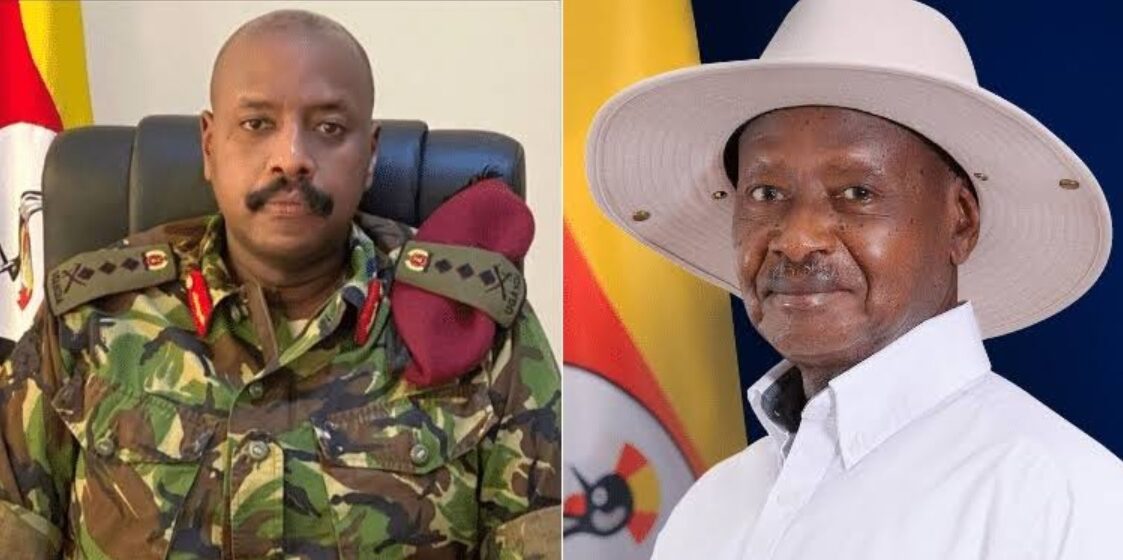In a recent statement that has ignited significant debate across Uganda and beyond, General Muhoozi Kainerugaba, the son of President Yoweri Museveni and current Chief of Defence Forces, boldly asserted that “no civilian will lead Uganda after President Museveni. The security forces will not allow it. The next leader will be a soldier or policeman.” This declaration hints at a potential shift in the political landscape of the country.
Shared via social media, General Kainerugaba’s remark reflects a sentiment that has been gaining traction within Uganda’s military circles. Since becoming head of the Uganda People’s Defence Forces (UPDF), speculation about his political ambitions has intensified, particularly given his close ties to his father, who has ruled since 1986.
The assertion that only a military or police figure will succeed Museveni can be interpreted in various ways. On one hand, it emphasizes the military’s role as a stabilizing force in a country that has experienced considerable political unrest. General Kainerugaba’s statement may serve as a reassurance of the military’s ongoing influence over governance, ensuring that security remains central to national leadership.
However, critics view this declaration as a move to entrench military rule or extend military influence over civilian governance, potentially undermining democratic processes. Many perceive this as part of a broader agenda, often referred to as the “Muhoozi Project,” which allegedly aims to position General Kainerugaba for the presidency. Despite denials from both father and son, this narrative gains traction with each strategic military promotion and public appearance by General Kainerugaba.
Supporters of General Kainerugaba argue that his military background is an asset, equipping him with the discipline, strategic acumen, and decisiveness needed to navigate Uganda’s complex socio-political landscape. They contend that his experience could foster stability and provide a more effective approach to governance, free from the inefficiencies often associated with civilian leadership.
The civilian response has been mixed. While some express concern over the potential militarization of politics, others welcome the idea of strong leadership, particularly in areas historically affected by insecurity. This sentiment is often linked to the belief that military leaders might address issues like corruption, insurgency, and economic mismanagement with a firmer hand.
No civilian will lead Uganda after President Museveni. The security forces will not allow it. The next leader will be a soldier or policeman.
— Muhoozi Kainerugaba (@mkainerugaba) September 21, 2024
From an international perspective, such statements raise concerns about democracy and civilian oversight of the military. Observers, both regional and global, might interpret this as a regression from democratic norms, potentially affecting Uganda’s international relationships and foreign policies, especially with donors and organizations that prioritize democratic governance.
As the 2026 elections approach, General Kainerugaba’s statement sets the stage for what could be one of Uganda’s most pivotal political transitions. Whether his vision of a military or police-led future for Uganda materializes or remains a provocative assertion meant to gauge public sentiment, it undoubtedly positions General Muhoozi Kainerugaba at the center of discussions regarding Uganda’s political trajectory. The coming years will reveal whether this marks a strategic consolidation of power or merely a statement of intent in an evolving political landscape.
Share this content:

